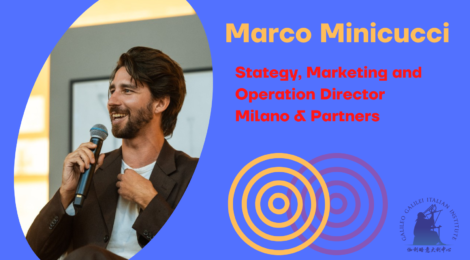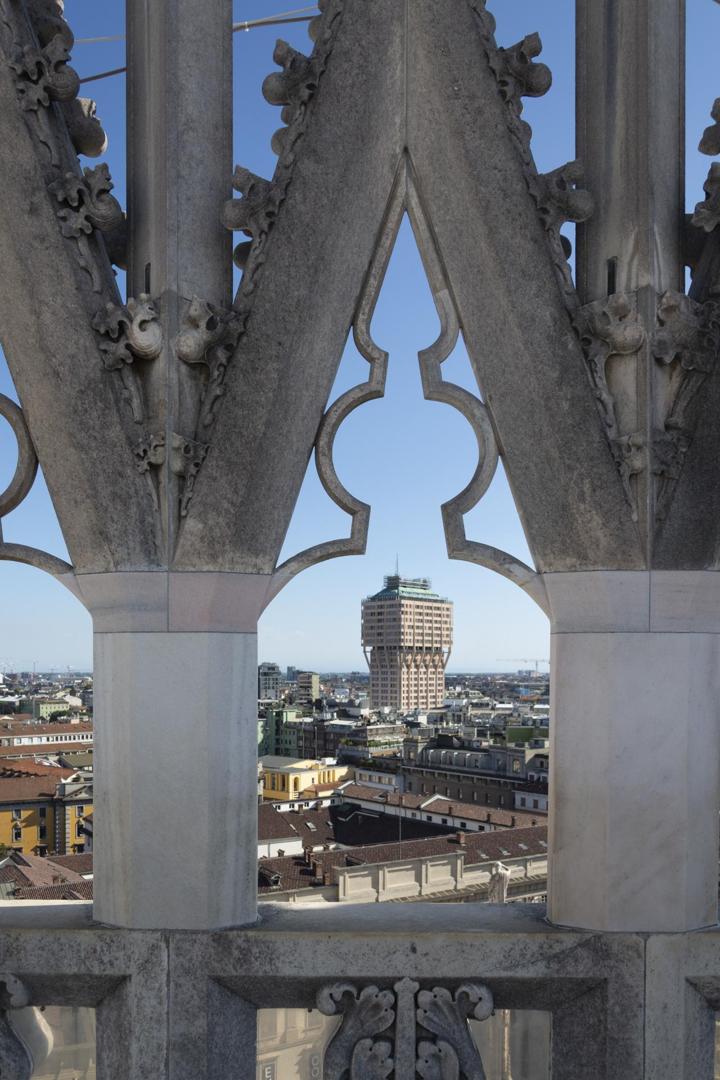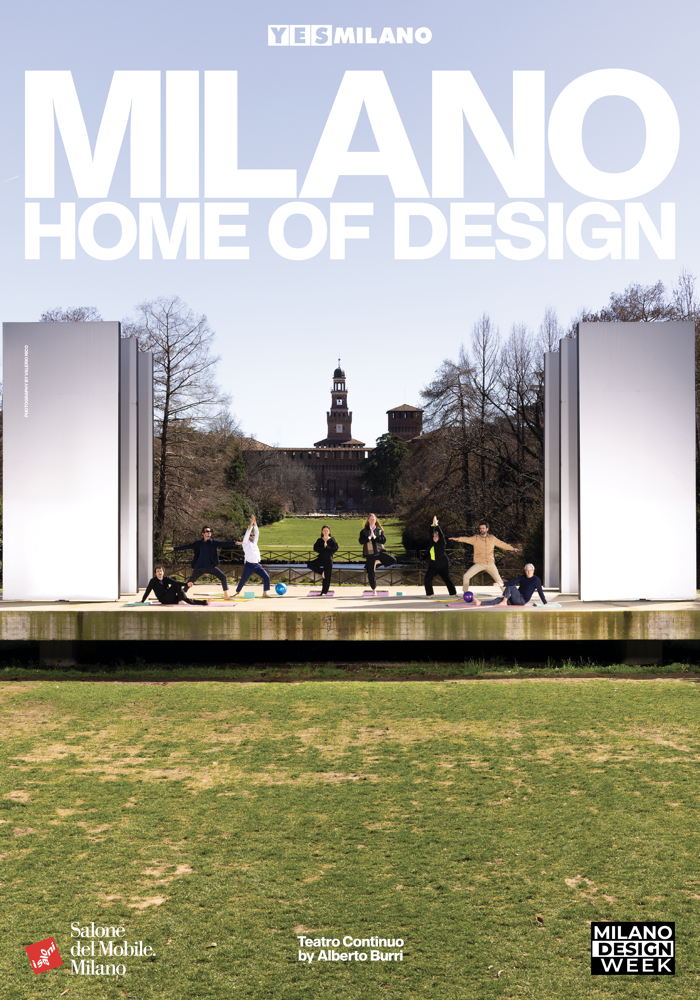
Circle of Friends – Interview with Marco Minicucci
Marco is Head of Strategy and Marketing for Milano&Partners, the city “destination marketing organization (DMO)”. They partner with public and private entities to communicate and promote what Milano is – and will be – to the world.
Marco holds a master’s in Economics and Management in Arts, Culture, Media, and Entertainment from Bocconi University, and he is passionate and inspired by urban and innovation studies. He is also part of the Bloomberg Associates network, for which he has worked as a Project Manager.
Enjoy his story and his experience with the promotion of a big tourism destination as Milano, with particular regard to Chinese tourists.

Credits – YesMilano Media Hub
INTRODUCTION
Dear Marco, it’s a pleasure to get in touch with you. In general, have you had the opportunity to work abroad, in Europe or other parts of the world, during your career? If so, what has your experience working outside of Italy taught you?
It’s a pleasure to answer your questions. Yes, I’ve been fortunate enough to travel abroad during my career, both in Europe and other parts of the world. These experiences have allowed me to engage with different cultures, both personal and professional, and to develop a broader and more aware perspective on the global dynamics of the sector. I believe that being exposed to various environments and flexible work methods has helped me develop a greater sensitivity in decision-making, which I find fundamental in my role.
Have you ever had the opportunity to travel to Asia and, in particular, to China? Have you ever become familiar with the reality of Chongqing?
It’s certainly at the top of my bucket list. In November, I’ll have the good fortune to participate in an event at the Salone del Mobile in Milan, in Shanghai. The connections between Italy and China are increasingly numerous, and I agree that traveling for work offers the opportunity to better understand markets and approaches. Chongqing, in particular, is interesting due to its rapid growth and its status as an economic and industrial hub in southwestern China. I hope to visit it in the near future.

Credits – YesMilano Media Hub
BUSINESS – Milano & Partners
How did you join Milan & Partners? What was your career path before your current role?
I started my career in the arts and culture sector, areas that allowed me to develop a solid understanding of cultural value as a lever for promoting the territory. Later, I got in touch with the City of Milan, where I collaborated on strategic projects for the city’s development. One of the most significant experiences was my collaboration with Bloomberg Associates, a non-profit consulting firm that supported the City of Milan during the founding of Milan & Partners. It was during this phase that the foundations were laid for what Milan & Partners is today.
Tell us briefly about your role and your company.
I currently serve as the Director of Strategy, Marketing, and Operations for Milan & Partners. I started in 2019, during the startup phase of the agency, with the goal of promoting Milan as an international destination of excellence.
We focus on strategic markets, including China, to showcase the city as a hub of innovation, culture, and business. My role includes overseeing marketing activities, defining long-term strategies, and managing relationships with local and international partners, positioning Milan among the world’s leading cities.
In terms of promoting the “Milan platform” to China, have you carried out any projects you would like to talk about? Are you interested in the Chinese tourism market?
Yes, the Chinese tourism market is part of our scope. In 2019, we launched the official WeChat account for YesMilano, which was an important first step in building a direct communication channel with Chinese visitors. That same year, we sent a Milan & Partners delegation to Shanghai to strengthen ties with key institutions and industry players.
Looking ahead, starting in 2024-2025, we are again focusing on China, especially on the eastern coast, aligned with the increase in direct air connections between Milan and Chinese cities. Strengthening these air routes is a key element in attracting more visitors and increasing opportunities for engagement between the two realities.
The MICE sector (Meetings, Incentives, Conferences, and Exhibitions) is the segment of Chinese tourism we are focusing our efforts on. In particular, Incentive events are becoming increasingly relevant for attracting business from China.
How has the pandemic affected your business, and what strategies have you implemented to respond to the crisis? Can you tell us anything specific about Chinese tourism?
We focused on telling the story of the city and its different neighborhoods. The pandemic undoubtedly imposed a significant pause on our activities aimed at international markets, particularly the Chinese tourism market. However, we never interrupted our relationship, thanks to our WeChat account, which allowed us to maintain continuity with our audience.
In 2019, Milan welcomed 417,000 Chinese tourists, our benchmark level. For 2024, estimates surpass pre-pandemic levels, marking a full recovery in arrivals.
In the leisure segment, Milan attracts Chinese visitors mainly for its luxury experiences, making it the preferred destination for 44% of tourists, across all age groups. Moreover, more than half of Chinese tourists (52%) in Milan are under 42, a growing segment compared to 2019.
A crucial role has been played by SEA Milan Airports, the company managing Malpensa and Linate airports, which accelerated the resumption of direct flights with China.
How important is technology in your business? Do you use technology to attract more Chinese tourists to the city?
Technology plays a central role in our promotional activities. We use digital tools to showcase Milan in an interactive and engaging way, and we collect data to monitor tourist flows and their impact on the city. However, our focus is not only on converting travel but rather on telling unique stories that highlight the city’s authentic character. The WeChat platform is an excellent example of how we use technology to connect with the Chinese audience, and we are exploring other digital solutions to enhance our offerings.
What are your plans for Milan’s next major event, the 2026 Winter Olympics?
The 2026 Winter Olympics represent an extraordinary opportunity for Milan, not only to showcase to the world how much the city has grown and changed but also to position it as a strategic hub for international events. In addition to the sporting events, we want to highlight Milan’s proximity to the mountains, presenting the city as an ideal starting point for exploring the entire region. The event will allow us to further strengthen our brand globally and welcome an even wider audience.

Credits – YesMilano Media Hub
GOING EAST – Why Look East?
Why does it still make sense to focus on the Chinese market for an urban promotion agency, and what opportunities do you see in this market?
Focusing on the Chinese market makes strategic sense for several reasons. First, China is one of the world’s leading sources of tourists, and Milan, as a European destination, has much to offer in terms of culture, art, and business. The growing demand for European destinations for corporate events and meetings makes the Chinese market particularly attractive. As mentioned earlier, we are concentrating our efforts on the MICE sector, with the aim of positioning Milan as the ideal location for corporate events and incentive programs. Chinese companies are increasingly seeking unique and high-quality experiences for their events, and we want to be at the center of this development by offering packages that combine our cultural and commercial offerings with the excellence of Milanese hospitality.
Are you interested in tourists, students and talents from Southwestern China?
Absolutely. Chinese students represent a fundamental part of our international student body, and their numbers continue to grow year after year. Currently, China is the country from which Milan welcomes the most international students, accounting for almost 16% of the total. We have noticed a strong interest in our universities from students in Southwestern China, and we aim to further strengthen these ties. Exchange programs and collaborations between universities are the main ways we attract talent to Milan.
How can Galilei and Sant’Anna in Chongqing be helpful to your business?
Institutions like Galilei and Sant’Anna in Chongqing can serve as a bridge between Milan and Chongqing for talent, startups, and innovative companies interested in discovering Milan as a European hub. Creating joint initiatives with high-level educational institutes like these is beneficial for promoting innovation and facilitating the connection between the needs of the Chinese market and the opportunities that our city has to offer.
Interview by Marco Bonaglia



